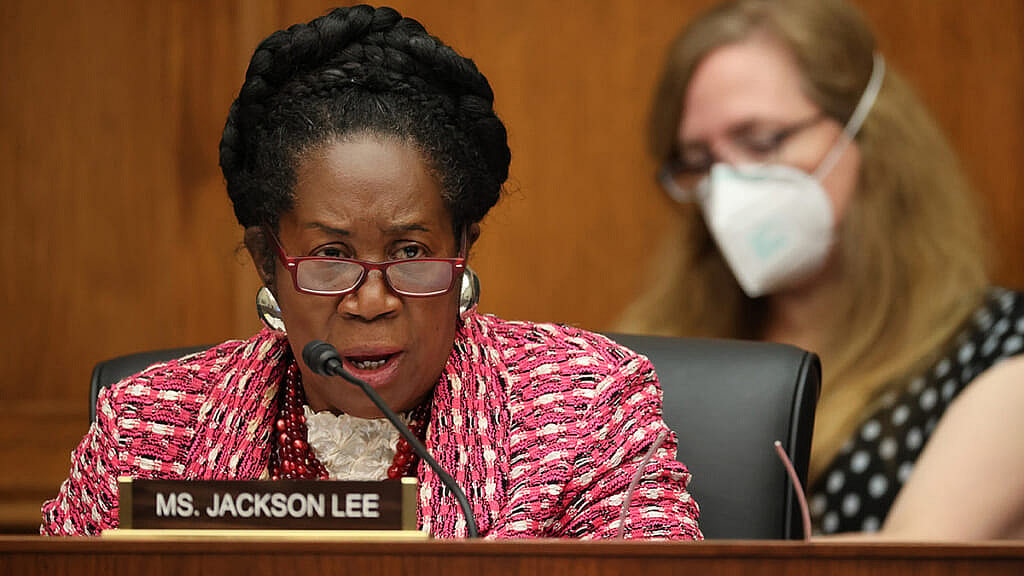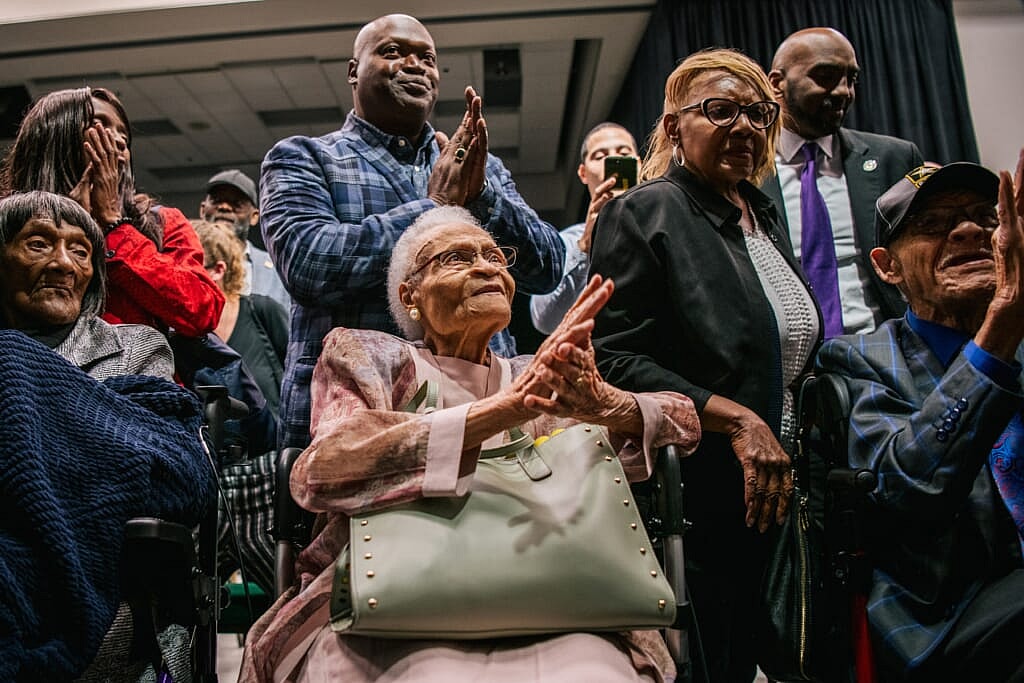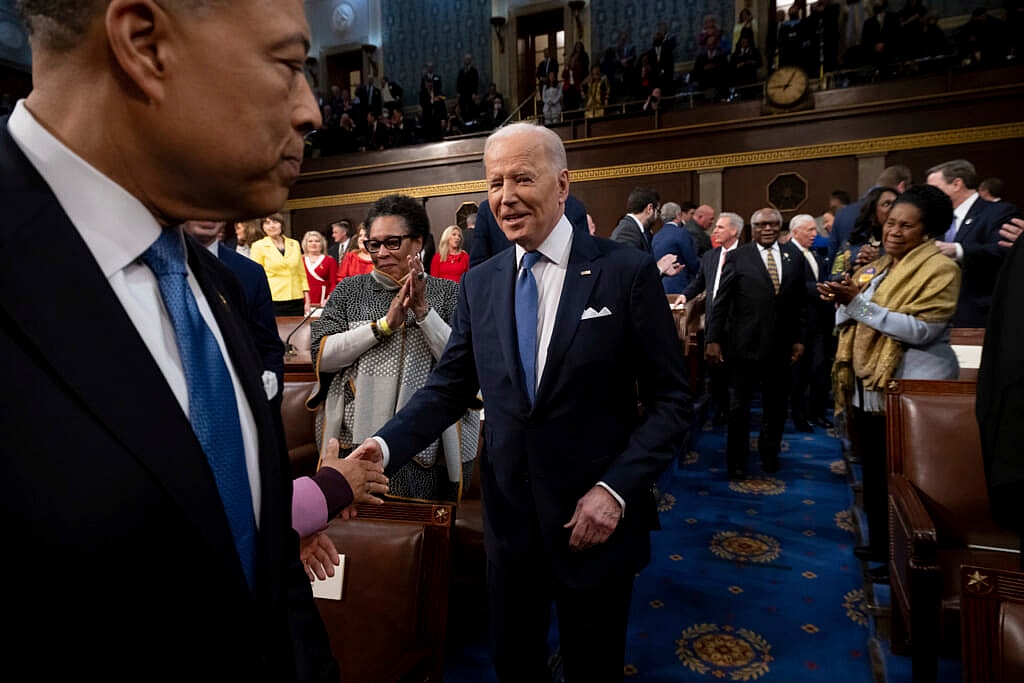The COVID-19 pandemic exacerbated the disparities that the Black Community has faced for some time, including the gap within education, homeownership and healthcare. Some activists believe reparations could be the answer to mitigating these socioeconomic issues.
Kennis Henry, the co-chair of the National Coalition of Blacks for Reparations in America, told theGrio that before the pandemic, Black children living in urban communities were receiving an unsatisfactory quality of education. Things worsened when Black students were forced to study from home for more than a year due to the pandemic.
“In some areas, families did not have access to the infrastructure for their children to study online. So, children have fallen behind,” she said.
Due to these hardships plaguing the Black community, Henry believes reparations should be more than just a form of physical payment and should include things like reparatory programs that could fix issues within the educational system.
“Restoration has to be about healing and repairing the injuries that are transgenerational. I think reparations should be about setting up programs that go to the heart of the societal issues that we as the people deal with,” she said.
In 2019, U.S. Congresswoman Sheila Jackson Lee (D-TX), re-introduced H.R. 40, which if enacted, would create a 15-member commission that would look at the impacts slavery and discriminatory policies have had on the Black community. The commission would then decide what remedies are necessary to make members of the Black community whole.

At this time the bill is waiting to be introduced to the House floor for a vote. If passed in Congress’s lower chamber, it would then need to be passed by the U.S. Senate and then signed into law by President Joe Biden.
Many members of Congress have supported the bill, including U.S. Reps. Ayanna Pressley (D-MA), Alexandria Ocasio-Cortez (D-NY), Tulsi Gabbard (D-HI) and U.S. Secretary of Housing and Urban Development Marcia Fudge.
After the bill made it out of a committee vote in April 2021, H.R. 40 went the furthest it’s ever gone since first introduced by U.S. Rep. John Conyers in 1989.
In 2020, Jackson Lee wrote in an article published by ACLU that, “slavery is America’s original sin, and this country has yet to atone for the atrocities visited upon generations of enslaved Africans and their descendants.”
Dr. Ron Daniels, a member of the African American Reparations Association, told theGrio that he believes every person of African descent living in the United States of America is eligible to receive reparations.
“The federal government has huge amounts of land and so we believe that land could be bequeathed to African Americans as a part of a reparations settlement. [We] look at benefits that would deal with land….the ability to have resources for medical facilities, for educational facilities, for communications facilities and land for economic development,” he said.
Daniels continued, “If we use Tulsa, Oklahoma as an example, the destruction of Black Wall Street, there were some weak apologies that have been made. We still have people who are a few survivors, actual survivors who are over 100 years old [and] who have never received compensation. They are due direct compensation in one form or another and their descendants likewise.”

Nkechi Taifa, a member of the Reparations Education Project, told theGrio that in addition to direct payments, African descendants should also have the option to choose unorthodox forms of justice such as, “repatriation resources for those who decide they want to go back to Africa.”
According to Congresswoman Jackson Lee, critics have argued that reparations are neither politically nor financially feasible.
However, Taifa said that the U.S. is more than capable of disseminating reparations because the nation has done it before.
“Reparations were in fact paid in the United States at the end of the enslavement era. They just weren’t paying Black people. The United States government gave reparations to white slave owners for the loss of their property,” she noted.
Daniels said, “Jews and their descendants are receiving reparations today, even though that was in the past. It is a part of international law that groups who are harmed and injured are due repair, through compensation.”
Although some are putting their weight behind the bill, they are not confident it has enough support to pass in the Senate.
“We have enough votes, as far as I’m concerned, to win the House, but…we don’t have the numbers in the Senate unless they change the rules for the filibuster,” Taifa said.
Henry believes the bill can survive if President Biden were to sign an executive order.
“It is on our elected officials to make it happen or to kill it in its tracks,” she said.

Taifa said if Biden were to sign an executive order, he would need to put this into force soon, “so that the Commission can get up and running and have it completed before the end of the Biden-Harris administration because executive orders go out of existence in the presidency.”
As a presidential candidate, Biden supported a commission on reparations but since being elected he has not signaled support for the bill.
Although it is unlikely the Senate will pass H.R. 40, Henry believes that if the Black community were to give up on the fight for reparations and justice, the possibility of receiving reparations will “either go away or will become the subject of fake news.”
Taifa said the future is bleak, so the time is now for reparations to be enacted into law.
“[Look] at what happened with January 6th and look at what’s happening across the country in terms of the demolition of voting rights and the hysteria dealing with truthful teaching in the schools, the composition of the Supreme Court as it is right now, I’m not feeling very good about what the future holds if we don’t get this done now,” she said.
She added that if Biden enacts an executive order to pass H.R. 40, it will send the message that “he’s heard from Black people, he is acknowledging the fact that it was because of Black people that he is in office right now and it’s the right thing to do.”
TheGrio is now on your TV via Apple TV, Amazon Fire, Roku, and Android TV. Also, please download theGrio mobile apps today!”


